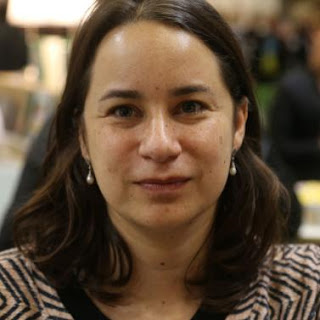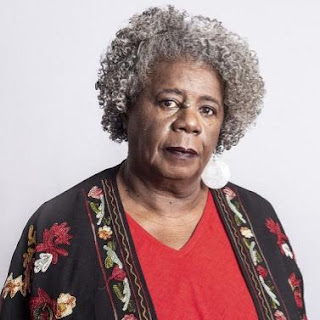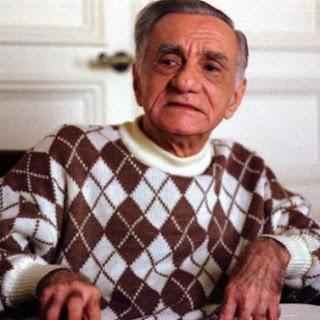Biography.
Elisa Lucinda (born February 2, 1958) is a Brazilian actress, singer, poet, writer and journalist. Lucinda attended journalism school at Vitória, when she worked writing for newspapers and in a news program. Lucinda was 27 when she decided to move to Rio de Janeiro to become an actress; however, her poetry was more successful.The poet Elisa Lucinda talks about love, pain, passion, frustration, birth, death; these universal themes that accompany the despair and hope of us all. But her poetry doesn’t shy away from dealing with social problems that are quite Brazilian. Racism, sexism, mistreatment of the poor.Warning of The Menstruating Moon
Boy, watch out for her!Care must be taken with these menstruating people...
Imagine a waterfall inside out:
In every act, the body confesses.
Watch out, boy
Sometimes it looks like grass, it looks like ivy
Beware of these people who generate
These people who metamorphose
Half legible, half mermaid.
The belly grows, it explodes humanities
And still goes back to the place that is the same
But is another, there it is:
Every word said, before saying it, man, consider...
Your damn mouth doesn't know that every word is an ingredient
That will fall on the same pan planet.
Be careful with every character you send her!
She's used to living inside herself,
Transforming fact into element
Sauting, boiling, frying everything
And everything still bleeds the following month.
Watch out, boy, when ya think ya escaped
Then it's your turn!
Because I'm a good friend
I’m talking the "real" talk
I know every one, besides being one of them.
You who came out of her crack
Delicate force when returning to it.
Don't go uninvited
Or without the proper wooing...
Sometimes by the bridge of a kiss
You soon reach the "secret city"
The lost atlantis.
At other times, several poundings and more you move from her.
Watch out, boy, that since you have a snake between your legs
You fall into the condition of carelessness
Before the serpent itself
She is a snake with an apron
Do not despise domestic meditation
It's from the everyday dust
That women draw philosophizing
Cooking, sewing and you arrive with your hand in pocket
Judging the art of lunch: yuck!…
Don't you know where are your boxers?
Ah, my desired dog
So concerned about growling, snarling and barking
That you forget about biting slowly
You forget about enjoying, sharing.
And then when you want to assault
You call her chick and cow.
They are two worthy neighbors of our world!
What you have to say about cows?
What you have I'll tell and don't you complain:
Your mom's a cow. a milking cow.
Cow and chick...
Well, it does not offend. it praises, flatters:
By comparing queen to queen
Ovules, eggs and milk
Thinking that you're assaulting
That you're swearing dirty words.
You're not, man.
You're quoting the beginning of the world!
Translated by Rubens Chinali
Published in Contemporary Brazilian Poetry (2020).









